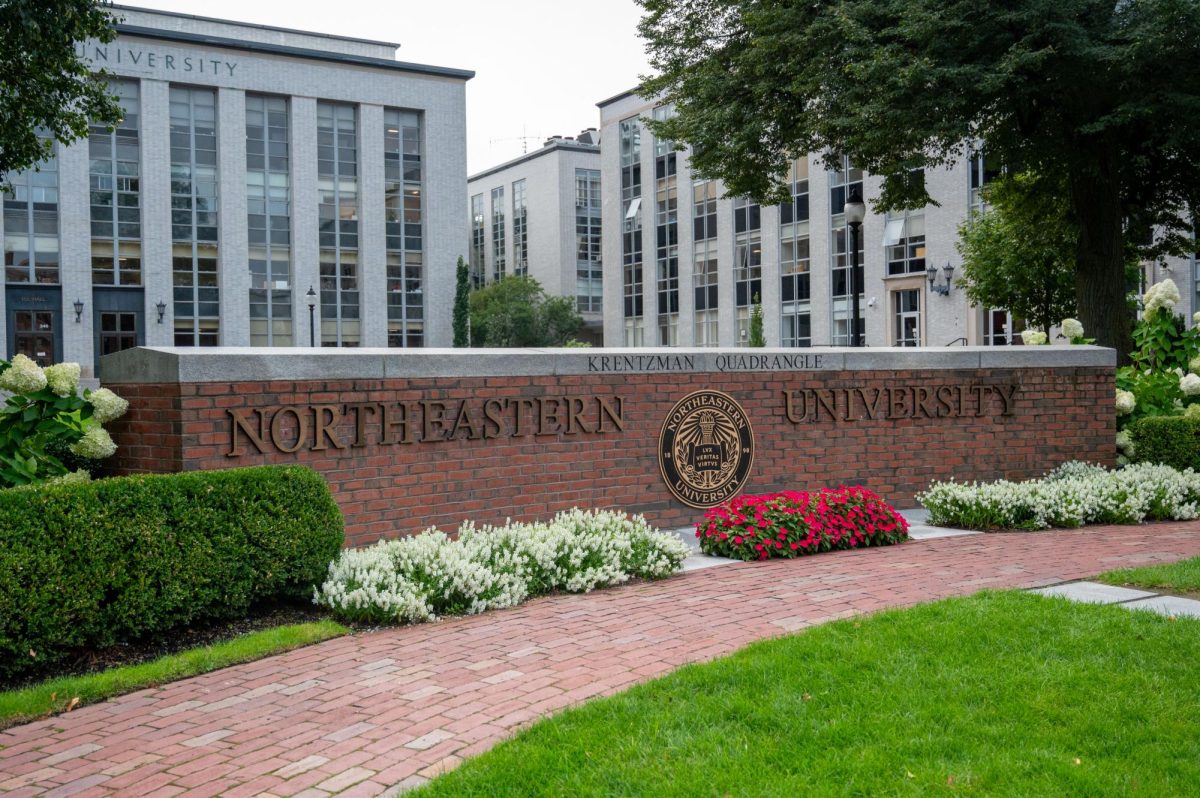As a Tennessean, I have seen how state-led attacks on diversity, equity and inclusion, or DEI, programs affect those in marginalized communities, making it significantly harder for them to find safe and supportive spaces. A main factor in my decision to move to Boston was that the city has historically been viewed as a progressive stronghold. However, I fear these conservative policies are making their way into institutions like Northeastern.
On Jan. 20, President Donald Trump issued an executive order titled “Ending Radical And Wasteful Government DEI Programs And Preferencing,” bringing an immediate halt to all DEI programs in the federal government. Demolishing these essential programs seems to have become a disturbing trend. Since 2024, a number of corporations have gutted their DEI programs.
DEI programs are designed to provide a more equal opportunity for employment and fair treatment in the workplace. However, the recent characterization of these programs as “reverse-discrimination” has prompted debates about whether the practice is truly fostering equity. The rhetoric in a progressive state like Massachusetts may look different, but a quiet scale back of DEI initiatives still sends the same message.
While public universities in the south have faced direct political interference, private universities like Northeastern face a different kind of threat. In a video posted to YouTube, Trump said, “The time has come to reclaim our once great educational institutions from the radical left.” He continued, saying, “Our secret weapon will be the college accreditation system.” One of the authorities that plays a significant role in the accreditation of private institutions of higher education is the National Advisory Committee on Institutional Quality and Integrity, or NACIQI, whose members are appointed by Congress. This poses a threat to those schools that implement DEI practices into their teaching. While Northeastern is accredited by the New England Commission of Higher Education, or NECHE, NACIQI is able to make recommendations to the United States Department of Education on whether the NECHE should be recognized as an accrediting body.
Without accreditation, a degree from Northeastern would be virtually worthless. Students at unaccredited schools do not receive federal aid and, upon graduation, may face challenges in obtaining employment and licensure. In some states, using a degree from an unaccredited school is outright illegal.
At Northeastern University, the Office of Diversity, Equity and Inclusion — now renamed the Office of Belonging — may begin to face challenges, especially considering that Northeastern received $268,328,000 in grants and contracts from the federal government for the fiscal year ending June 30, 2024. Northeastern must follow federal guidelines to receive these grants. If the Office of Belonging continues to operate as it has in the past, it may face challenges with federal funding and accreditation under these shifting policies.
In a statement, Northeastern Vice President for Communications Renata Nyul said, “While internal structures and approaches may need to be adjusted, the university’s core values don’t change.” But what does that really mean? If the values are the same, then why is there a need to restructure? This language echoes moves by other universities in southern states where DEI programs were quietly downsized under the guise of adjustments, ultimately making resources less accessible.
Public universities in more Republican states have already seen the dissolution of their DEI programs. In Florida, the use of federal or state funds for DEI programs is illegal at public colleges. In my home state, the University of Tennessee – Knoxville, or UTK, has fought against the state’s attempts to restrict DEI initiatives in higher education since 2022. Despite the advantage of operating primarily in a progressive state, Northeastern seems to be following eerily in UTK’s footsteps: rebranding, downsizing and making resources harder to access.
As a Tennessean, and a gay Tennessean at that, I have seen firsthand how incorporating DEI initiatives allows for a more diverse and accepting workplace and education. However, Trump’s executive order has led to more turmoil in my hometown. Franklin Pride, a nonprofit organization just south of Nashville, provides a vital safe space for LGBTQ+ people in the region. The organization shared a post to Instagram Jan. 23 saying “two of our biggest sponsors have pulled their support of our June 7th event due to corporate mandates.”
Nonprofit organizations like Franklin Pride and Twin Cities Pride rely heavily on DEI initiatives at large corporations.
The same thing happened to Twin Cities Pride Jan. 24 when Target withdrew its funding for a festival in Minnesota. While the festival far surpassed its fundraising goal following the loss, this does not represent the fate for those in much more conservative areas. If DEI cuts continue, even Boston’s progressive nonprofit sector could face the same challenges.
While DEI programs are often associated with education and employment, their broader societal impact is too often overlooked. Many nonprofits offer marginalized communities an essential space to connect and share lived experiences. However, due to the structure of a grassroots organization, they rely heavily on outside donors to make these spaces a reality as it does not come at a cheap price.
While it may seem that these conservative agendas are far removed from life at Northeastern, the reality is that this affects us too. I fear that this trend — one already particularly popular in the conservative south — may start to become much more prevalent in more progressive areas like Boston.
Even with Northeastern’s Office of Belonging, the effects of anti-DEI policies are visible. The enrollment of Black students at our school decreased by 35% between the Class of 2027 and 2028. As the Supreme Court and our now Republican-controlled Congress and executive branch continue to push back against so-called “woke agendas,” Northeastern will face increasing challenges to its commitment to diversity. UTK saw a similar decrease in Black student enrollments of 23.64% from 2020 to 2023.
Trump’s executive order said all federal DEI programs “under whatever name they appear” must be terminated. This raises the question: Will Northeastern’s updated Office of Belonging survive in the coming years, or is it merely delaying the inevitable?
Nationwide, as more companies and schools begin to remove DEI efforts, it is going to be much more difficult for people of marginalized status to find spaces where they feel welcome. It is imperative that we continue to stay vigilant of the rhetoric being used by the government and the media.
As students of a global university, we must remember that the effects of anti-DEI policies in any region are far-reaching. We no longer exist in a bubble within the progressive city and state our school calls home. If we want to preserve the values we claim to uphold, we must push back before we lose those protections entirely.
Spencer Lyst is a first-year pharmaceutical sciences major. He can be reached at lyst.s@northeastern.edu.
















